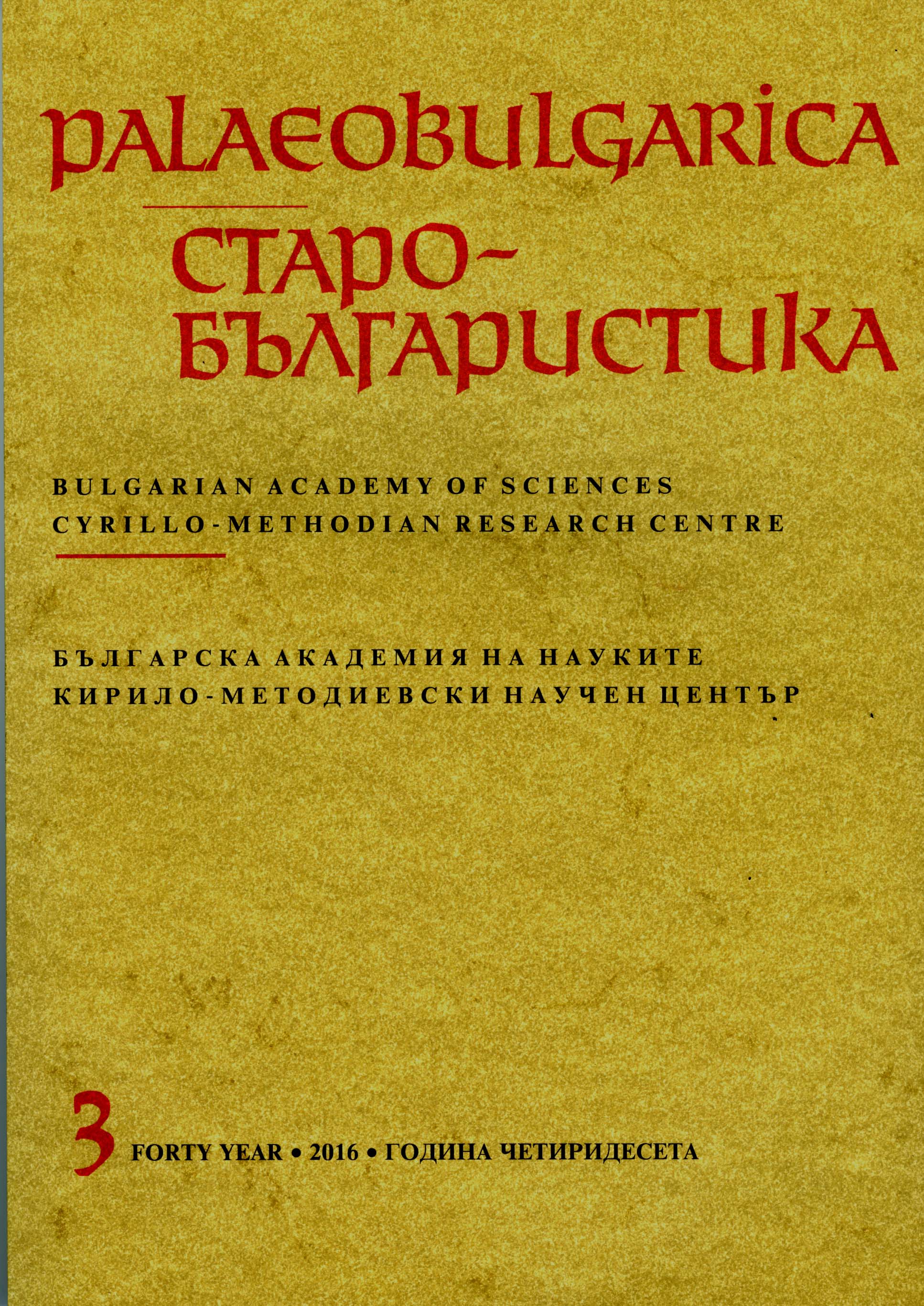Мотивирани съществителни имена с абстрактно значение в първите две книги на ранния старобългарски превод на Римския патерик
Suffixed Nouns with Abstract Meaning in the First Two Books of the Old Bulgarian Translation of the Roman Paterfkon
Author(s): Presiyan BorisovSubject(s): Language studies
Published by: Кирило-Методиевски научен център при Българска академия на науките
Summary/Abstract: This is a paper about the derivational nouns with abstract meaning which occur in the first two books of the Old Bulgarian translation of St. Gregory the Great's Dialogues which are known in the Slavic tradition as Roman Paterikon. In the first two books there are 333 nouns of this kind. They are divided into 14 suffixal groups (-ние, -тие, -ие, - ьство/- ьстви, -ость, -ота/та, -ина, -снь/-знь, -ьба, -оба, -ьда, -изна, -эль, -Ґни), each of the suffixes being present in the manuscripts of the Old Bulgarian canon. The number of nouns in the suffixal groups attested in the material corresponds to the data on the productivity of these suffixes in Old Bulgarian manuscripts established by R. Tseytlin (Цейтлин 1977; Цейтлин 1986). The calquing as a kind of translation technique is rarely seen (in some two-stem compounds). Therefore the conclusion can be drawn that the process of translation was focused on the meaning and not on the morpheme structure of the word in the language of the original. On the basis of the lexical material discussed here we may assume that the Slavic translator did not know the Latin original and worked with the Greek version of the Dialogues. Between the Old Bulgarian and the Latin version there are many inconsistencies at the level of syntax and semantics. On the lexical level this becomes manifests in the lack of Latin counterparts for many Old Bulgarian words (or the presence of only approximate ones). Of the 333 nouns of this group found in the first two books of the Dialogues 248 (or 74.5%) are attested in the manuscripts of the Old Bulgarian canon, which indicates a significant degree of commonality between the lexical material of the two books studied and that of the Old Bulgarian manuscripts. The number of surveyed nouns registered in the Slavonic translation of the Homilies on the Gospel is smaller, but still more than half of the total number (183 or 54.7%). A possible reason for this can be found in the fact that the places of occurrence of both translations can be attributed to different regions, but that the language was still largely unified at the lexical level. It should be noted that only 22 of these 183 nouns are not attested in the Old Bulgarian manuscripts. The results concerning the degree of matching between the suffixal nouns with abstract meaning from the first two books of the Roman Paterikon with those in the lexical material of the Old Bulgarian manuscripts and the Homilies, are largely similar to those presented in our earlier study dedicated to suffixed nouns denoting persons (Борисов 2013).
Journal: PALAEOBULGARICA / СТАРОБЪЛГАРИСТИКА
- Issue Year: 2016
- Issue No: 3
- Page Range: 103-119
- Page Count: 17
- Language: Bulgarian
- Content File-PDF

